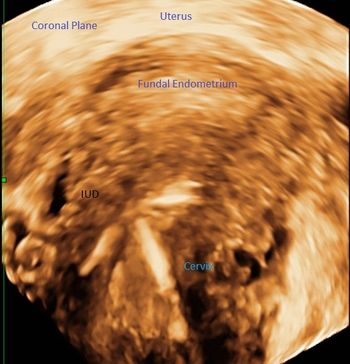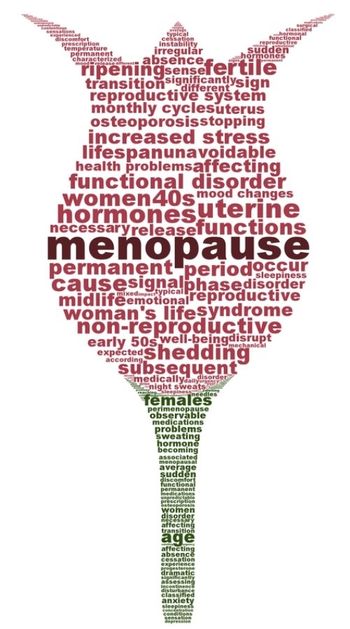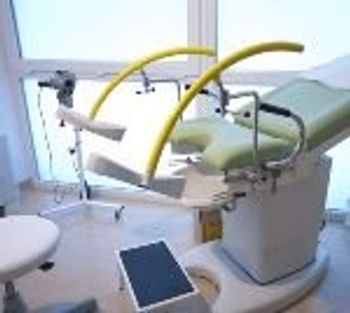
The clinical and scientific realms of endometriosis have significant gaps, highlighted by persistent delays in diagnosis and underestimates of harm.

The clinical and scientific realms of endometriosis have significant gaps, highlighted by persistent delays in diagnosis and underestimates of harm.

There is a movement under way to make oral contraceptives over the counter. As a clinician, would you be in favor of this?

Improving patient-doctor communication is the goal of genitourinary syndrome of menopause (GSM), the new name for vaginal atrophy and other menopause symptoms.

New research from Australia has found that only small doses of testosterone are needed to raise testosterone back to premenopause levels in postmenopausal women.

This case demonstrates the utility of 3D ultrasound, using the coronal plane as a reference point, for patients with an IUD who have pelvic pain.

Vulvovaginal atrophy, or atrophic vaginitis, is now being called "genitourinary syndrome of menopause," or GSM, according to experts.

A pseudo-tampon that delivers an antiretroviral drug is now being studied as a form of pre-exposure prophylaxis for women at high risk for HIV infection.

The optimal time to get the HPV vaccine is before a first sexual encounter. But getting the vaccine after still offers significant protection against cervical dysplasia.

A novel birth control option is in the works, and it’s in the form of a microchip that, when implanted, could work for up to 16 years. The future is now, folks.

New recommendations against routine pelvic exams in adult women with no symptoms have been issued by the American College of Physicians. What do you think?

The American College of Physicians (ACP) recommends against pelvic exams in asymptomatic, nonpregnant, adult women. Some say this is faulty logic. What say you?

The Supreme Court justices insist that their decision for Hobby Lobby is limited and narrow in scope. Find out why gynecologist Deborah Ottenheimer, MD, doesn't buy it.

Use of an intravaginal ring with a pod to drug tablets may provide protection against HIV-that’s the hope, at least. Read on to find out how monkeys responded.

Hobby Lobby doesn’t have to offer contraceptives to their employees. If you’re mad, you’re not alone. Read what Justice Ruth Bader Ginsburg had to say.

The rate of sexual assault among female veterans is high, and the criminal act has pronounced associations with infertility, abortion, and childlessness.

Vaginal dryness from vulvovaginal atrophy is a troublesome symptom of menopause. The good news: many treatments are available for this low-estrogen condition.

Sexual violence on college campuses may be more prevalent than you think. Are you asking patients the right questions about their sexual health?

Vaginal atrophy doesn’t have to be a life sentence of painful sex. New research describes a solution for dyspareunia that can take sex from “painful” to “comfortable.”

Don’t let time constraints and large patient loads prevent you from providing a thorough well-woman visit. Are you covering all the bases?

Marijuana and e-cigarettes can cause harm in more ways than you may think. Do you ask your patients about their marijuana or e-cigarette use? The numbers may surprise you.

New research expected this year will bring about significant changes to clinical practice. Here, society leaders share what’s on their radar for 2014.

The two widely used surgeries for apical prolapse work equally well for both apical prolapse and stress urinary incontinence two years postsurgery, research shows.

Three doses of the quadrivalent HPV vaccine was more effective in preventing high-grade cervical abnormalities than other types and more effective in younger women.

A striking number of sexually active women experience reproductive coercion by their male partners, and their ability to use contraception and plan pregnancies may be compromised.

In Denmark, researchers found that the risk of atypia, atypia+, and cervical intraepithelial neoplasia grade 2 or 3 (CIN2/3) were significantly reduced among women who received the vaccine.